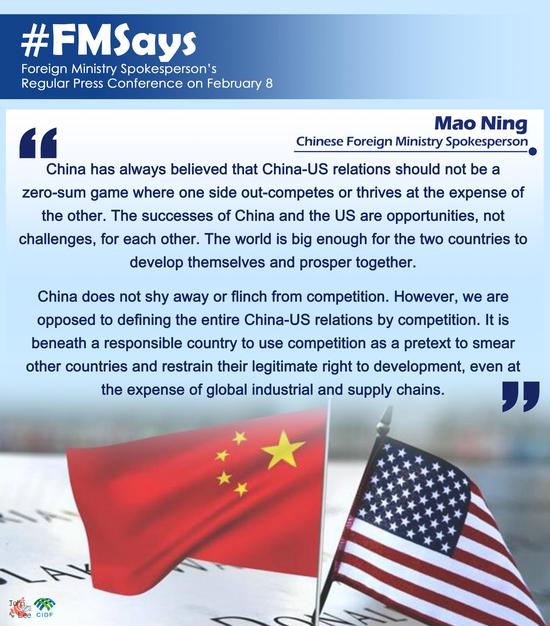
Online shopping platform Temu, a subsidiary of PDD Holdings, offers deep discounts on a range of products. (PHOTO by CHEN YIHANG/FOR CHINA DAILY)
Chinese online discounter Pinduoduo Inc is accelerating steps to expand its footprint in North America through its cross-border e-commerce platform Temu.
On Sunday, Temu made a splash at the Super Bowl, the most-watched television event in the United States, with its 30-second advertisement titled Shop Like a Billionaire.
Media reported that Temu is planning to expand into Canada and is conducting internal testing of its website. Pinduoduo, however, did not respond to a request for comment on Monday.
Temu, which was launched in the U.S. in September, has since gained popularity among U.S. consumers as it offers a wide selection of merchandise — apparel, consumer electronics, jewelry, shoes, bags, cosmetics, baby products and pet supplies — at competitive prices. Most of them are shipped directly from factories or warehouses in China.
According to data from analytics company Sensor Tower, as of Jan 31, Temu was downloaded nearly 20 million times globally, with shoppers from North America accounting for more than 90 percent.
Temu also ranked first in free downloaded apps on both App Store and Google Play for much of the past two months in the U.S., surpassing Amazon, TikTok and fast-fashion retailer Shein.
Temu offers deep discounts and coupons as part of its strategy to serve price-conscious consumers. Most of its offerings are daily necessities priced below $10.
Ever since COVID-19 became a pandemic in 2020, Chinese vendors such as Pinduoduo have been serving consumers globally through cross-border e-commerce platforms.
Experts said Temu's business model removes middlemen from the equation, allowing Chinese suppliers to sell directly to U.S. consumers and ship directly from China, instead of building a network of U.S. warehouses.
Zhang Zhouping, a senior analyst of business-to-business and cross-border activities at the Internet Economy Institute, said price, quality and service are the most important factors to consider selling merchandise to consumers. "Low prices have shown some obvious advantages, especially amid the global economic downward pressures."
The Shanghai-based company announced in September it plans to invest 10 billion yuan ($1.47 billion) to help China's manufacturing enterprises boost their global reach. In the first phase of the initiative, Pinduoduo will help 100 Chinese brands to go global and support 10,000 manufacturers to connect directly with overseas markets.
It will still provide related infrastructure like warehousing, cross-border logistics and after-sales services through contract services, as well as offer tailor-made courses to domestic manufacturers on going global. The latter will enjoy long-term preferential policies of zero deposit and zero commission, the company said.
Pinduoduo, however, still faces intense competition from established players such as Amazon in the U.S. market, Zhang said. He noted Chinese fast-fashion online retailer Shein and AliExpress, Alibaba's cross-border e-commerce platform, both of which have already established a significant presence in overseas markets like the U.S., will also offer stiff competition.
Chen Tao, an analyst with internet consultancy Analysys in Beijing, said it is an inevitable trend that Chinese online retailers are accelerating their layout in overseas markets so as to cultivate new users and diversify revenue sources.
The e-commerce penetration rate in North America is high, and local consumers are willing to use online marketplaces to buy products, Chen said.
Chinese enterprises, he said, should step up localization efforts in overseas markets, and pay attention to compliance with local laws and regulations, in order to ensure their brands become reputable.


















































 京公网安备 11010202009201号
京公网安备 11010202009201号